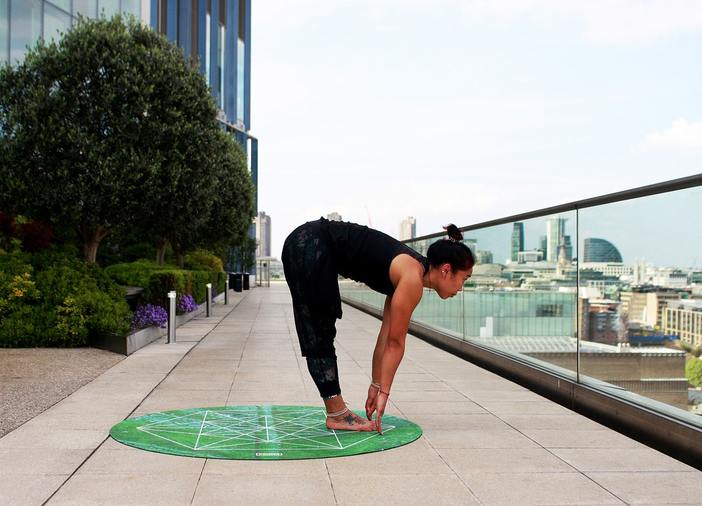Qigong, an ancient Chinese practice, combines gentle movements, mindfulness, and focused breathing techniques to cultivate Qi (vital energy) and promote overall health and vitality. Among the various aspects of Qigong, breathing exercises hold a central role. These exercises focus on harnessing the power of breath to enhance Qi flow, calm the mind, and support physical and mental well-being. In this article, we explore the principles and benefits of Qigong breathing exercises and how they can contribute to a healthier and more vibrant life.
Understanding Qigong Breathing Exercises:
Qigong breathing exercises involve conscious control and deepening of the breath to optimize the flow of Qi within the body. By coordinating slow, deep breaths with specific movements or mental visualizations, practitioners aim to cultivate a state of relaxation, balance, and enhanced vitality. The focus on breath in Qigong is believed to harmonize the body, mind, and spirit, creating a profound sense of well-being.
Key Principles of Qigong Breathing Exercises:
- Awareness of Breath: Qigong emphasizes the cultivation of mindfulness and deep awareness of the breath. By directing attention to the natural rhythm of inhalation and exhalation, practitioners become more attuned to the present moment and the subtleties of their breath.
- Deep and Slow Breathing: Qigong encourages slow, deep diaphragmatic breathing. This involves expanding the abdomen on inhalation and gently contracting it on exhalation. Deep breathing helps to fully oxygenate the body, relax the nervous system, and facilitate Qi flow.
- Coordinating Breath with Movement: In certain Qigong exercises, breath is coordinated with specific movements or postures. The intention is to synchronize the breath with the flow of Qi, enhancing the movement’s effectiveness and promoting a harmonious connection between breath, body, and energy.
Benefits of Qigong Breathing Exercises:
- Enhances Vitality and Energy: Deep and conscious breathing in Qigong helps to cultivate and strengthen Qi, enhancing overall vitality and energy levels. The increased flow of oxygen to the cells nourishes the body and supports optimal organ function.
- Promotes Relaxation and Stress Reduction: Qigong breathing exercises activate the parasympathetic nervous system, triggering the relaxation response. This helps to reduce stress, calm the mind, and promote a sense of inner peace and tranquility.
- Improves Lung Function: Deep diaphragmatic breathing in Qigong exercises improves lung capacity and efficiency. It helps to strengthen respiratory muscles, increase oxygen exchange, and enhance overall respiratory health.
- Balances Emotions and Mental Clarity: Qigong breathing exercises have a profound impact on emotional well-being. They help regulate emotions, reduce anxiety, and promote mental clarity and focus. By cultivating a calm and centered state of mind, practitioners can navigate life’s challenges with greater ease.
- Supports Physical Health: Qigong breathing exercises have been associated with numerous physical health benefits, including improved circulation, enhanced immune function, lowered blood pressure, and reduced chronic pain.
Incorporating Qigong Breathing Exercises into Daily Life:
- Find a Quiet Space: Choose a quiet and peaceful environment where you can comfortably practice Qigong breathing exercises without distractions.
- Adopt a Comfortable Posture: Sit or stand in a relaxed and comfortable position. Maintain an upright posture, allowing for optimal breath expansion.
- Center Your Awareness: Close your eyes or focus softly ahead, directing your attention inward. Center your awareness on the natural rhythm of your breath.
- Deepen and Lengthen the Breath: Take slow, deep breaths, expanding your abdomen as you inhale and gently contracting it as you exhale. Allow the breath to flow naturally and effortlessly.
- Coordinate Breath with Movement (Optional): If practicing Qigong exercises that involve movement, coordinate the breath with the specific movements, allowing the breath to guide and support the flow of Qi.
- Practice Mindful Presence: As you continue with the breathing exercises, maintain a mindful presence, observing the sensations, thoughts, and emotions that arise without judgment.
- Gradually Increase Duration and Frequency: Start with a few minutes of practice each day and gradually increase the duration and frequency as you become more comfortable and experienced.

Qigong breathing exercises offer a powerful means of harnessing the transformative potential of breath for health and vitality. By cultivating deep awareness and practicing slow, deliberate breaths, individuals can access a state of relaxation, balance, and enhanced well-being. Incorporating Qigong breathing exercises into daily life can support physical health, reduce stress, promote emotional harmony, and cultivate a deep connection between mind, body, and spirit. Embrace the power of breath through Qigong and unlock the potential for a healthier, more vibrant life.









